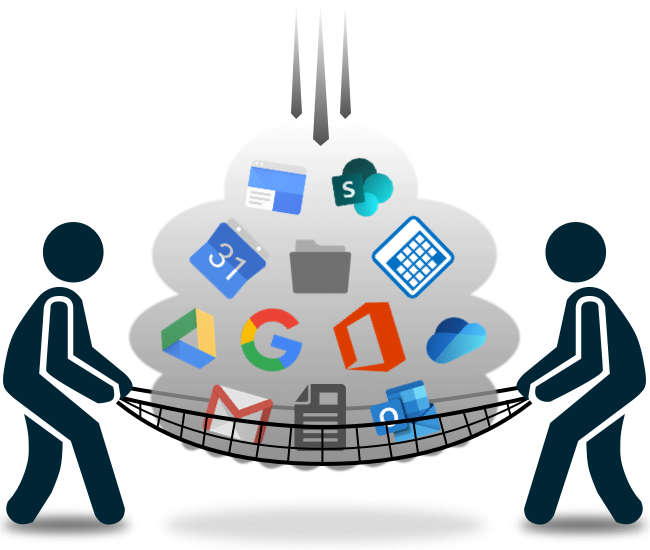Assumption: Data stored on the cloud is safe and secure. After all, the data living on SaaS platforms like Google G Suite or Microsoft Office 365 is protected by the most advanced security infrastructures in the world.
Reality: SaaS data breaches do occur. PCM, an Arizona-based cloud solution provider, was hacked and the admin credentials of PCM’s Office 365 clients were stolen. This impacted its 4,000 employees, 2,000 PCM clients, and tens of thousands of PCM end users. It’s unlikely PCM will be able to reproduce the $2.2 billion in revenue it generated in 2018.
Had the right backup and recovery solution been in place, it might have been a different story.

3 Reasons you Need to Backup your SaaS Data
As PCM learned the hard way, just because your data is in the cloud doesn’t mean it’s safe. The bottom line is you need to protect business-critical information, and to do that, your SaaS solution must be backed up. Here’s why:
1) Complete backup, not really
Office 365 and G Suite maintain only near-time copies of the data for protection against infrastructure threats. They do not provide a complete backup — which means when a breach occurs, you can lose your data without any hope of recovery.
2) Protect data from your end
The leading cause of SaaS data loss is quite simply your users being users. A staggering 60% of breaches are caused by human error. Other causes of data loss, like malicious deletion requests, configuration mistakes, and sync errors, are all threats that originate on your end, not the SaaS vendor’s. And, that’s the catch.
SaaS companies are responsible for securing only their infrastructure – what you put in there is your responsibility. No one knows this backdoor better than cybercriminals who see ‘you’ as an easy target as compared to Microsoft and Google with world-class security systems.
3) Avoid putting all eggs in one basket
Leaving critical data solely in the hands of your SaaS vendor leaves your entire business vulnerable. Since, contractually and in the eyes of your users and your management, you are responsible for your SaaS data, you need to be proactive in taking charge of that data. It should be accurately, securely and frequently backed up, ensuring it is available for rapid restoration. Clear visibility into the status, details and errors of each backup are key to establishing trust in the service.
Data Protection with the Right Backup Solution
The only thing worse than no backup solution is a poorly chosen backup solution. The wrong backup solution not only fails to protect your business-critical SaaS data but also brings in new threats, putting your data — and your business — at risk.
Download our whitepaper Securing Your SaaS Backup to develop a comprehensive security strategy for your SaaS backup.